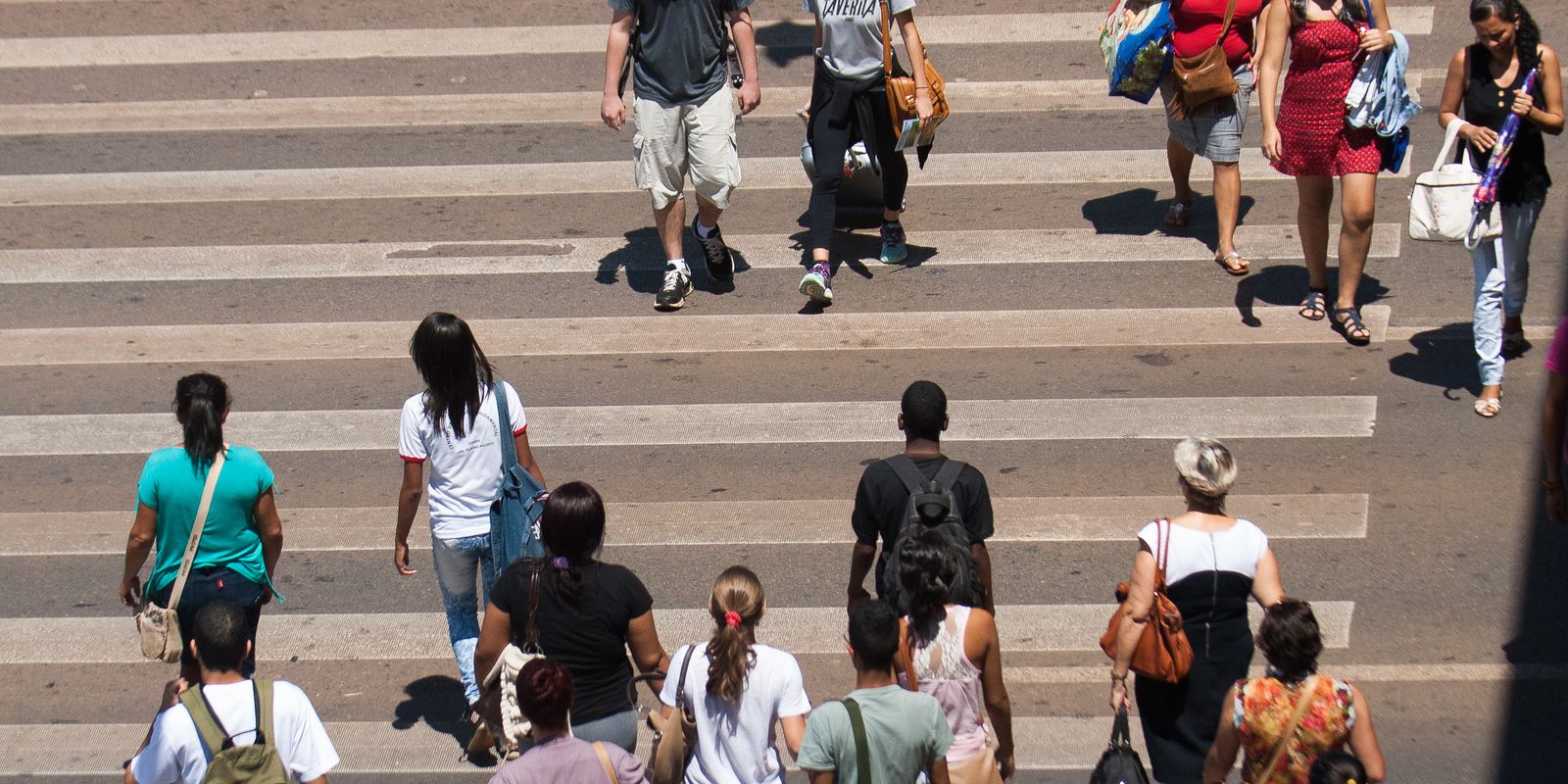The life expectancy of Brazilians at birth, also known as life expectancy, has now reached 76.4 years. This estimate is from the Brazilian Institute of Geography and Statistics (IBGE), based on new population projections, released this Thursday (22).
The data shows that life expectancy in the country, for those born in 2023, is 79.7 years for women and 73.1 years for men.
The IBGE also released revised data for life expectancy for previous years. According to the IBGE, in 2019, one year before the COVID-19 pandemic, for example, the estimate was 76.2 years, according to data revised by the institute.
Pandemic
In 2020, life expectancy at birth fell to 74.8 years, falling even further in 2021, to 72.8 years, that is, a loss of 3.4 years compared to 2019. In 2022, there was the first recovery in life expectancy, which rose to 75.4 years, still below 2019.
In 2023, expectations therefore managed to surpass the 2019 estimate. According to IBGE projections for the coming decades, life expectancy should reach 77.8 years in 2030, 79.7 years in 2040, 81.3 years in 2050, 82.7 years in 2060 and 83.9 years in 2070.
For women, the projections are 81 years in 2030, 82.6 years in 2040, 84 years in 2050, 85.2 years in 2060 and 86.1 years in 2070. For men, the estimates would be 74.6 years in 2030, 76.7 years in 2040, 78.6 years in 2050, 80.2 years in 2060 and 81.7 years in 2070.
“We had this external mortality shock, which was the pandemic. We observed the effect of this in 2021 and 2022 and, after this period, we are already observing a return to the historical trend. We project that life expectancy at birth will increase over time and the difference between men and women will decrease, mainly related to a decrease in deaths from external causes”, explains IBGE researcher Cíntia Agostinho.
The increase in life expectancy, associated with the reduction in the fertility rate, leads to an aging population. According to the IBGE, the proportion of elderly people (aged 60 or over) in the country increased from 8.7% in 2000 to 15.6% in 2023.
By 2070, 37.8% of the country’s inhabitants are expected to be elderly, more than double the number today.
Average age and infant mortality
The average age of the population, which was 28.3 years in 2000, rose to 35.5 years in 2023 and is expected to reach 48.4 years in 2070.
The infant mortality rate, which was 28.1 per thousand live births in 2000, rose to 12.4 per thousand in 2022, with 13.4 for boys and 11.4 for girls. The projection is that, in the coming decades, the rate will continue to fall and, in 2070, it will reach 5.8 per thousand, with 6.1 for boys and 5.4 for girls.















